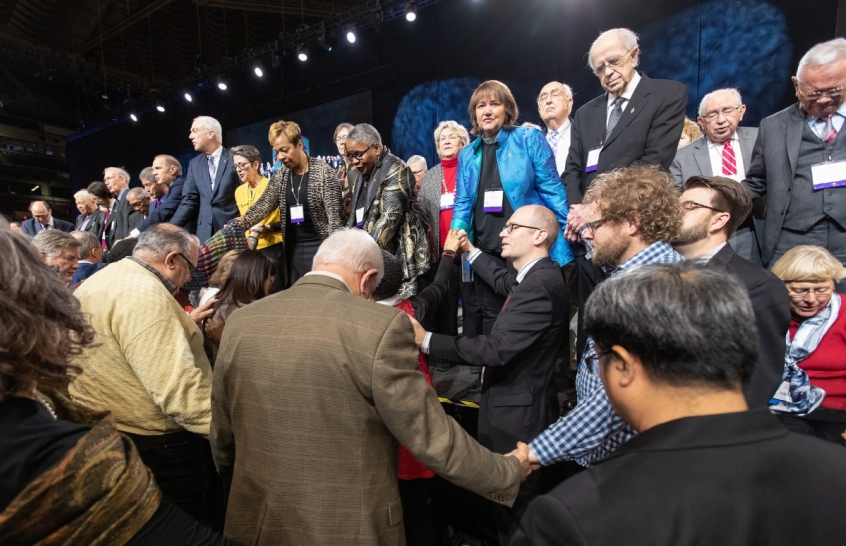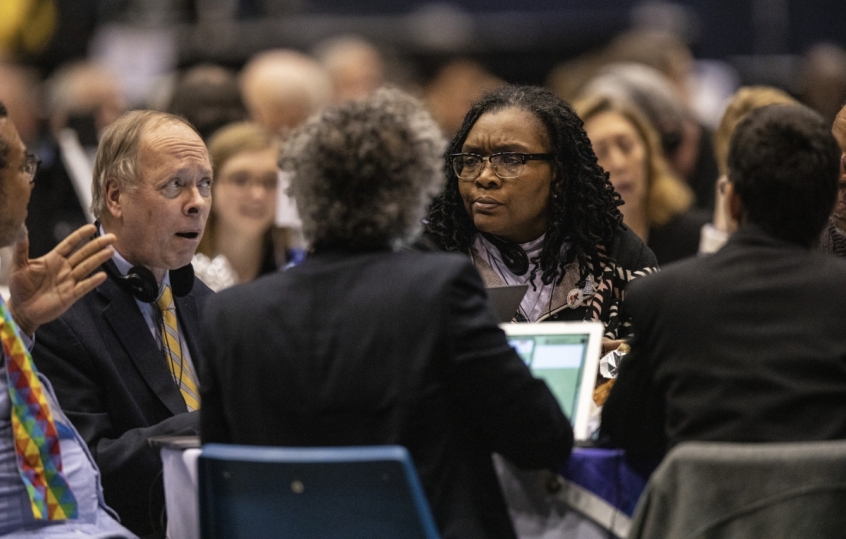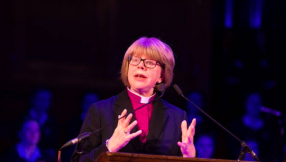The United Methodist Church has voted in favour of maintaining the status quo on same-sex marriage and gay clergy, endorsing the 'Traditional Plan' at its General Conference.

It had earlier rejected the One Church Plan that would have opened the way for individual churches to decide how they would handle the issue.
The decision followed fraught debates which exposed a division between the largely liberal US section of the Church and conservative African delegates.
Discussion centred on proposed revisions to the Church's Book of Discipline following the 2018 report of a commission appointed by the the Council of Bishops. The Council said at the time that it had heard criticisms that the Book of Discipline 'contains language which is contradictory, unnecessarily hurtful, and inadequate for the variety of local, regional and global contexts'.
While the bishops had recommended endorsing the One Church Plan, the Conference's decisive endorsement of the rival Traditional Plan – by 438 votes to 384 – has left liberal members of the Church wondering what their future within it will be.

An increasing number of US Methodist clergy have come out as gay, with a lesbian pastor, Karen Oliveto, elected as a bishop. She still holds that position despite the denomination ruling that her marriage to a woman violated church doctrine. According to NPR, speaking before the vote yesterday one delegate, Rev Tom Berlin, said that if the Conference rejected the One Church Plan, 'You will be putting a virus into the American church that will make it very sick, and it will be sick quickly.'
He said: 'Many pastors are going to lead their church away from the connection. Some conferences will leave, I believe.
'Other people will stay and fight. And they will do weddings; they will break the Book of Discipline; there will be trials; it will be in the news.'
However, another delegate, Cara Nicklas, regretted the tone of the debate, saying: 'By those advocating for the One Church Plan, I was either told explicitly that I am mean-spirited and unloving for holding to the church's doctrine on same-sex relationships, or the general tenor of the communications implied that I am unloving if I don't agree to change the church's Discipline. I don't love all, I am told.
'When that is the message — when gay persons become convinced I don't love them because I don't condone their behavior, it hurts my relationships with them.'
Around 43 per cent of delegates were from abroad, mainly from Africa, and mainly supported the existing bans. Rev Jerry Kulah, from Liberia, said that if the One Church Plan were to pass 'the church in Africa would cease to exist'. 'We can't do anything but to support the Traditional Plan – it is the biblical plan,' he said.
Council of Bishops president Kenneth Carter said after the meeting that the Traditional Plan might cause progressive churches to leave the denomination. 'Persons will feel harmed,' he said.
Rev Allen Ewing-Merrill, a pastor from Portland, Maine, pledge to defy the Traditional Plantweeted: 'I will not participate in your bigotry, sin & violence.'
However, while many clergy are progressive, congregations are far less so. According to a poll, 44 per cent of respondents described their beliefs as traditional or conservative, 28 per cent moderate or centrist and only 20 per cent as progressive or liberal.













